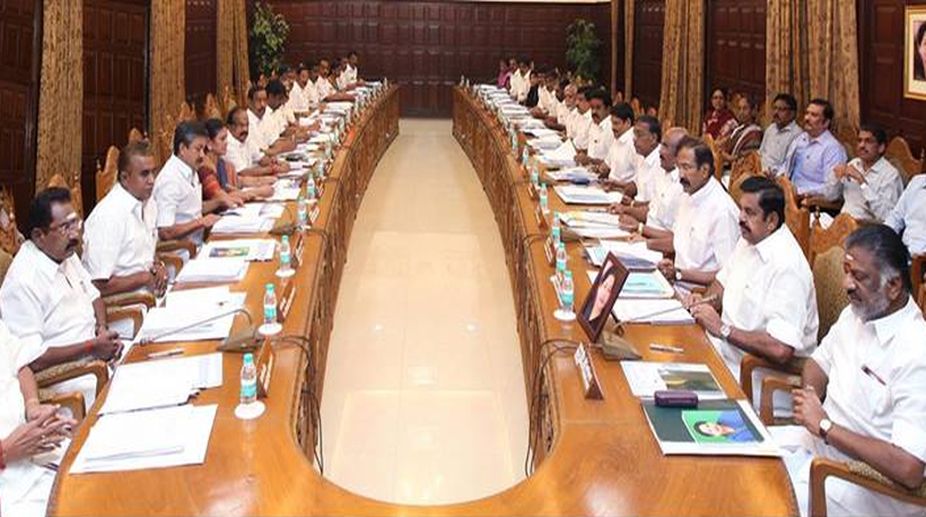Facile landslide victory for DMK in Tamil Nadu bypoll
The DMK candidate VC Chandirakumar polled a whopping 1,15,709 voteswhile the NTK’s MK Seethalakshmi secured 24,151, accounting for 15.59 per cent.

AIADMK (PHOTO: FACEBOOK)
The Supreme Court by dismissing the Karnataka government’s review petition in J Jayalalitha’s Disproportionate Assets case without giving an opportunity to the parties to argue their points of view has unintentionally contributed to the ongoing moves to unite the two factions of the AIADMK and retrieve the party’s ‘two leaves’ symbol frozen by the Election Commission of India. Besides setting a bad precedent in helping corrupt public servants by iterating that the case against Jayalalitha abated on her death even though arguments concluded six months earlier, it paved the way for the faction headed by general secretary of the AIADMK VN Sasikala, keeper of the keys to Jayalalitha’s ill-gotten wealth, to grab it. According to the trial court judgment, which was restored by the Supreme Court, her wealth should have been attached and fine of Rs 100 crore collected from the vast estate she had left behind. Only her imprisonment for four years became infructuous. Order XXII Rule 6 of the Code of Civil Procedure makes it clear that there will be no abatement of an appeal if the death is after judgment is reserved. This rule had been observed by the Supreme Court in a number of civil appeals. Neither the Constitution nor Supreme Court Rules, 2013, provide for such abatement of appeal. A fraction of Jayalalitha’s wealth was on display in the aborted RK Nagar byelection to the Tamil Nadu Assembly where EC officials detected disbursal of Rs 89 crore for votes by TTV Dinakaran, the Sasikala faction candidate who is her nephew and deputy general secretary of the party, and it turned out to be his and his party’s undoing. His alleged attempt to bribe the EC with Rs 50 crore to defreeze the ‘two leaves’ symbol and allot it to him got him and his party in deep trouble and spurred both the factions of the AIADMK to initiate merger talks.
Within hours of the Delhi police uncovering Dinakaran’s plot to snatch the ‘two leaves’ symbol by bribing the EC and booking a case against him under the Prevention of Corruption Act, tremors were felt in Fort St George in Chennai held by the Sasikala faction. Realisation has dawned on the ministers, including Chief Minister K Paliniswami, and MLAs, that their political survival depends on dumping Sasikala and her extended Mannargudi family from the party. Reciprocating the sentiments, the rival faction led by O Panneerselvam, chosen by Jayalalitha twice and the Governor once to officiate as Chief Minister, expressed willingness to merge with the rival faction and reclaim the ‘two leaves’ symbol, key to AIADMK’s electoral success. Fishing in troubled waters, the BJP leadership is trying to rope into the NDA the merged AIADMK by offering one or two berths in the Union Council of Ministers. Such a move will bring the support of 132 MLAs and 49 MPs to the NDA in the coming presidential election and help BJP extend its footprint in Tamil Nadu. But as long as Sasikala holds the key to Jayalalitha’s private treasury, she can upset the apple cart.
Advertisement
Advertisement
Advertisement